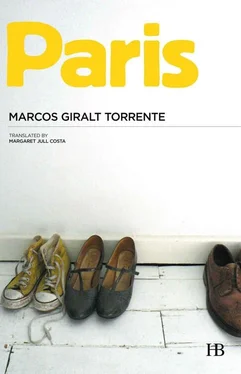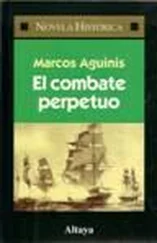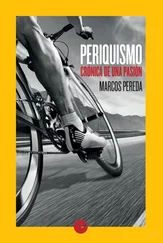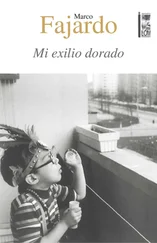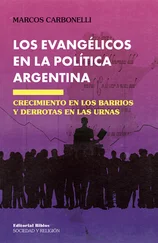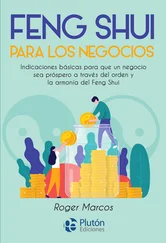Marcos Giralt Torrente - Paris
Здесь есть возможность читать онлайн «Marcos Giralt Torrente - Paris» весь текст электронной книги совершенно бесплатно (целиком полную версию без сокращений). В некоторых случаях можно слушать аудио, скачать через торрент в формате fb2 и присутствует краткое содержание. Год выпуска: 2014, ISBN: 2014, Издательство: Hispabooks, Жанр: Современная проза, на английском языке. Описание произведения, (предисловие) а так же отзывы посетителей доступны на портале библиотеки ЛибКат.
- Название:Paris
- Автор:
- Издательство:Hispabooks
- Жанр:
- Год:2014
- ISBN:9788494228452
- Рейтинг книги:5 / 5. Голосов: 1
-
Избранное:Добавить в избранное
- Отзывы:
-
Ваша оценка:
- 100
- 1
- 2
- 3
- 4
- 5
Paris: краткое содержание, описание и аннотация
Предлагаем к чтению аннотацию, описание, краткое содержание или предисловие (зависит от того, что написал сам автор книги «Paris»). Если вы не нашли необходимую информацию о книге — напишите в комментариях, мы постараемся отыскать её.
Paris — читать онлайн бесплатно полную книгу (весь текст) целиком
Ниже представлен текст книги, разбитый по страницам. Система сохранения места последней прочитанной страницы, позволяет с удобством читать онлайн бесплатно книгу «Paris», без необходимости каждый раз заново искать на чём Вы остановились. Поставьте закладку, и сможете в любой момент перейти на страницу, на которой закончили чтение.
Интервал:
Закладка:
“We’re going to Burgos,” she said.
It’s many years since I heard those words, and although memories tend to overlap and nothing is as it was, I still remember, as clearly as I remember those words, that I did not reply; it was as if nothing had been said. My mother’s eyes immediately returned to the road ahead, and, for a while, silence reigned again. It wasn’t until we reached the last traffic lights on the edge of the city, before merging onto the main highway, that she spoke again. She was changing into first gear, the moment after the lights turned green, when, raising a newly lit cigarette to her lips and without taking her eyes off the road, I heard her say in a strangely calm, almost routine voice, “What would you think if someone were to tell you that you had been entirely mistaken about my real profession and that I’m really a professional thief, a swindler?”
At this point, my memory becomes confused, as if it were some now nonexistent building whose shape we can clearly recall, but not where the windows were, or what materials it was made of, or what the decoration on the façade was like. All that remains now is the sound of the traffic, a sense of my own nervousness, and a certain inner disquiet, but all trace of thought has vanished. All that remains are the means used by my mother to tease out the thread of a confession, her half-prudent, half-timid way of tugging at the skein, leading me toward an explanation that would help me understand and forgive, when the real revelation came; her actual words, however, have been erased, they no longer exist. They were probably not quite as abrupt, but even at the risk of making them sounding artificial, all I can do is reconstruct them, although I can’t do the same with my own words.
After a pause during which neither of us spoke, she continued for some minutes to ask me more of these rhetorical questions, which she strung together without expecting me to answer them and without answering them herself: “What would you think if I were to lose my job and, unable to find another, devoted myself to stealing? Do you think stealing is justifiable in times of need, or do you believe that you should always seek some other means of earning money?” Although she was driving and couldn’t really take her eyes off the road to look at me, she was forced to do so when, having clarified her position by telling me that stealing out of desperation was not the same thing as stealing for convenience’s sake or so as to avoid having to work, she began to take a more radical stance: “It may be that other people won’t always be able to understand the reasons why someone steals. There may be other reasons apart from necessity. You might be suffering from an illness or mistakenly think that there’s no other solution. There are some things whose importance you alone can understand. For example, the way we, as individuals, experience certain problems. What hurts or saddens me won’t necessarily hurt or sadden you.” Here she gave more examples to help me understand what she meant, and only when she was sure she had convinced me did she dare to conclude with another question: “Who are we to judge the reasons that lead someone to act outside the usual rules, who are we to judge whether they’re valid or not?” She underlined this question with a silence and then, trying to sound emphatic, took the next definitive step in her argument: “That isn’t the whole story. Anyone can make a mistake. For example, feeling that the future holds no hope and committing a desperate act that you immediately regret. The main thing to consider is that such a slip does not completely invalidate a person or make him less honorable. Unless it becomes a habit, the act of stealing tells us nothing about the thief.” After this rather unorthodox statement, spoken in a monotone, she fell silent for a few seconds, then glanced across at me and again gave herself as an example: “Say one day you talk back to me, and because I’m feeling particularly on edge, I respond by slapping you — I would certainly be acting wrongly. However, that slap would not be enough to make me a bad person, and it would be the same if, instead of hitting you, I went into a bank to steal. Everyone makes mistakes, and if only certain people are arrested, it isn’t because those of us outside prison are different or incapable of doing exactly the same. It’s just that we’ve never been in that same desperate situation or we’ve lacked either the courage or the means. I myself am not completely immune. The fact that I haven’t fallen doesn’t mean that I won’t one day. It may be that I haven’t needed to up until now, or couldn’t run the risk of losing you. But that’s no guarantee for the future. No one is immune, not even you, although I hope, of course, that you never find yourself in such dire need and never feel you have no other way out.”
That, in my own words, is the long and short of what my mother said that morning — before she mentioned my father. Her words were doubtless gentler and more maternal, as befits someone trained to speak to children. And yet after that very impersonal introduction, she did not move on from the general to the particular. Whether for her own convenience or because she was thinking of me and how I might react, she felt she should have her hands free and thus be ready to deal with whatever my response might be; we had left the main road and were parked outside a bar, with the engine off but with no indication as yet that we were going to get out of the car and into the intense cold that was already making itself felt and go in search of a second breakfast. She didn’t beat around the bush this time. She told me directly, and then looked at me like someone studying the effect on another person of a particularly harsh statement. I still can’t remember her exact words. I heard the word “prison,” I heard the word “Burgos” again, and then I said nothing, absorbing this confession, and at the same time trying to imagine the remote, diffuse figure of my father in a prison cell; a confusion of bars, roll calls in corridors, and prisoners with wicked faces went through my mind, more like a movie than anything that actually related to me. For a moment, neither of us said anything; any explanations came later. My mother was looking at me, but I said nothing. She was looking at me and I was looking at her, and neither of us broke the silence, because neither of us really knew how to. I imagine that what I was feeling was not what my mother was expecting I would feel; she imagined that part of my world must be falling in on me, and yet my only world was her. It could not collapse as long as she did not collapse, as long as she was there studying my face intently, waiting for some expression of doubt or pain to appear, and meanwhile frozen by her own expectations of what she imagined was going on inside me; even when she reached into her purse to take out a cigarette and light it, she still waited, keeping her eyes fixed on me. We must have spent several minutes like that, because the next thing I remember is what she said, first in the bar and then again back in the car, trying to exonerate my father, abandoning the abstract language she had used initially in favor of more concrete terms, painting a picture of him that was real and at the same time comprehensible and forgivable. I can no longer separate what she told me from what I know now, from what she gradually confided to me in later, lonelier years, and from what I’ve since found out for myself, what I dared to think, or what I made up. I imagine that the resulting notion was more innocuous, more hopeful or less crude, than the one I have now. In what way or to what degree, I really don’t care. After all, if that morning has endured over the years and I can speak about it now, it’s not because of what I found out then. Even if she had chosen not to take me to Burgos and had told me nothing about my father, what I would have known then is pretty much what I know now. “Listen,” my mother said that morning, stubbing out her cigarette and turning to look at me again. “Pay attention and listen.”
Читать дальшеИнтервал:
Закладка:
Похожие книги на «Paris»
Представляем Вашему вниманию похожие книги на «Paris» списком для выбора. Мы отобрали схожую по названию и смыслу литературу в надежде предоставить читателям больше вариантов отыскать новые, интересные, ещё непрочитанные произведения.
Обсуждение, отзывы о книге «Paris» и просто собственные мнения читателей. Оставьте ваши комментарии, напишите, что Вы думаете о произведении, его смысле или главных героях. Укажите что конкретно понравилось, а что нет, и почему Вы так считаете.
